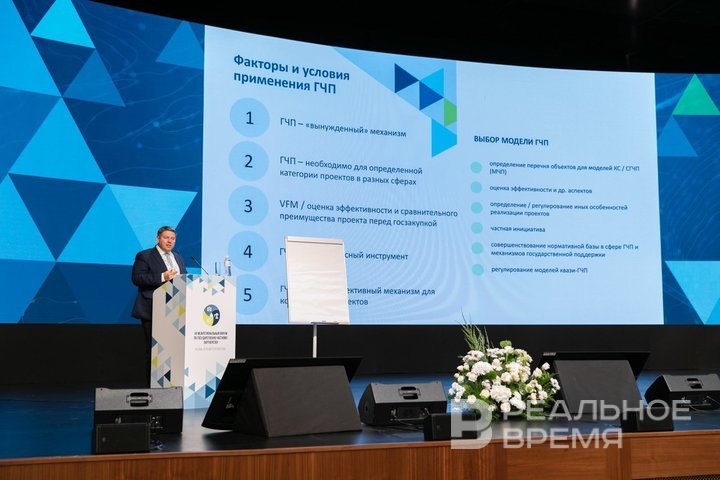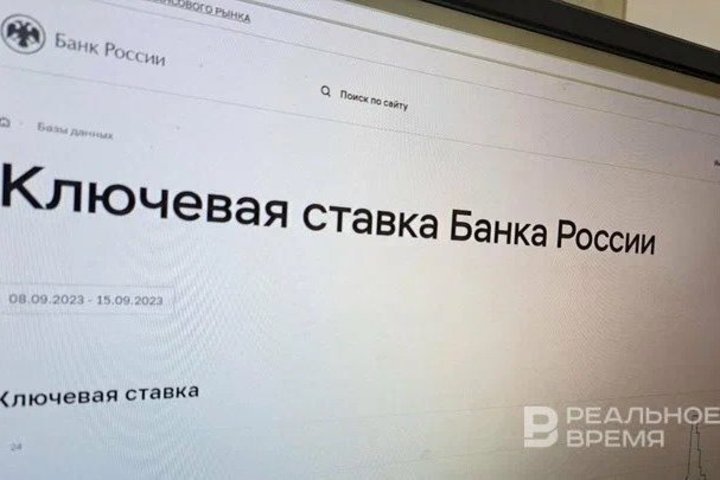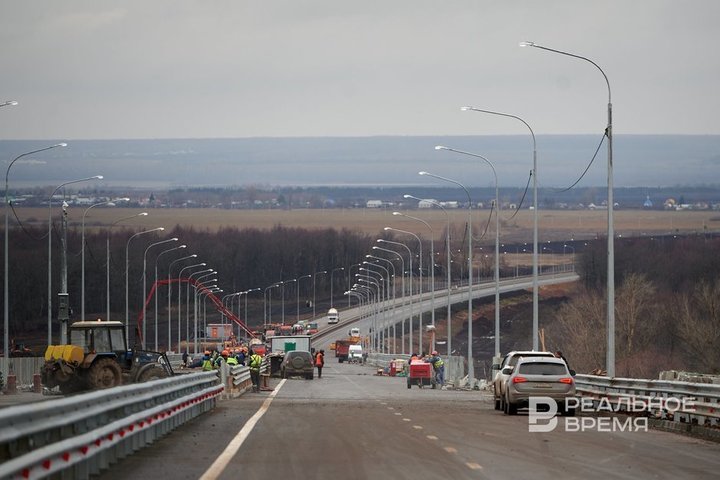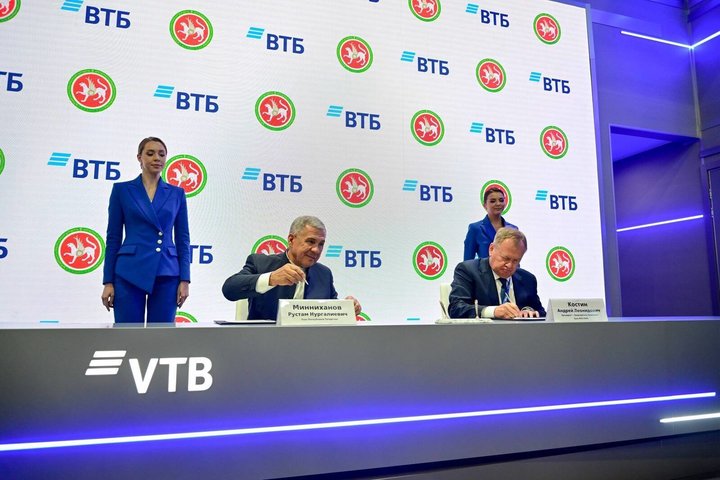A ‘combo’ to be offered to concessionaires: in small towns — a budget, in large cities — a loan
Forum participants are afraid of the upcoming reduction of PPP projects due to high bank rates

“It is foolish to deny that the current Central Bank rate is a barrier not only for investments in the real sector, but also in infrastructure. If one attracts a resource at 18-20% per annum, then the yield should be almost 30% per annum. This is unrealistic," the participants of the VII Interregional Forum on Public-Private Partnership in Kazan lamented. VTB vice president Maryam Davletshina proposed subsidising interest rates on concessionaire loans, but the way out is seen in the inevitable narrowing of the “funnel” of PPP projects. Therefore, 150 billion rubles for municipal infrastructure will be selected more precisely, according to Maxim Tkachenko, the executive director of the VEB.RF business unit.
Three threats to PPPs
“There is such a thing as a bifurcation point, at which the system becomes unstable and uncertainty arises. Further development depends on where we are today," said Maxim Tkachenko, the executive director of the VEB.RF business unit and moderator of the meeting, speaking at the plenary session of the VII Interregional Forum on Public-Private Partnership (PPP), which is taking place in the Bashir Rameev IT Park in Kazan.
According to him, at the beginning of the year there were more than 4,000 accumulated projects in the country worth 4.2 trillion rubles. But this year, the decline is imperceptible, which is more a “certain element of inertia”. According to his forecast, most likely not all PPP projects will receive commercial closure, i.e. they will attract financing.

The main reason is the high key rate of the Central Bank. “The current key rate is simply a barrier not only for investments in the real sector, but also in infrastructure. With such rates, it will be almost impossible to implement projects under the old rules of the game, and this is a problem," Tkachenko said. In his opinion, the maximum allowable rate is 10%, at which investors will be ready to conclude concession agreements.
But there are also non-financial reasons that have caused tension in the PPP project market. We are talking about the activity of control and supervisory authorities, from whose submission unhealthy hype arises.
“The last year and a half have been unprecedented in terms of the activity of the supervisory authorities," he noted.
The claims of government agencies to PPP projects are related to the constant adjustments of agreements that affect significant conditions. Sometimes PPP mechanisms are used to circumvent legislation in public procurement, the speaker explained. In many ways, these are accumulated problems that have led to the emergence of unscrupulous investors. And finally, the PPP market is expecting a reconfiguration due to the formation of new national projects, but “there is no more money in the budget”.
125 PPP projects in Tatarstan
First Deputy Prime Minister of the Republic of Tatarstan Rustam Nigmatullin noted that the government has always paid special attention to strengthening the relationship between government and businesses, attracting investments into the economy, including through the use of PPP mechanisms. According to him, 125 concession agreements have been signed in the republic in the field of healthcare, education, sports, and communal infrastructure. The total investment amounted to 745 million rubles. The largest of them was a concession agreement with Avtostrada JSC for the construction of the Alekseevsk-Almetyevsk highway as part of the Shali-Bavly highway with a total investment of 102 billion rubles, he said.

In the last 2 years, four concession agreements with the company Fizra for the creation and operation of sports infrastructure have been added to them. The capital grant amounted to 360 million rubles, another 300 million rubles were invested by the investor himself, Ilshat Gazizov, CEO of Fizra PLC, later told reporters.
Budget constraints, offsets and winter mitigation
Forum participants expressed concerns that recent changes to the Budget Code to limit regional spending on concession and PPP projects would lead to a halt in infrastructure projects. It is proposed to provide in the code that the annual amount of expenses for the fulfillment by regions of their obligations under concessions and PPPs should not exceed 10% of their own budget revenues (transfers from the federal budget for co-financing projects are also taken into account). The right of regions to impose similar restrictions on municipalities is also being introduced.
In addition, the participants propose to lower the threshold for the implementation of offset contracts in the range of 500-100 million rubles instead of the current 500 million rubles, and also give the federal centre the right to collect applications from regions for offset contracts.

Banks are also alarmed by the increase in the key rate. VTB vice president Maryam Davletshina proposed subsidising interest rates on concessionaires' loans. According to her, investors have 20% of their own capital, and hardly anyone wants to cover the remaining 80% with loans.
“Money is expensive, I would even say very much, which will not affect the PPP in the best way," Marat Mukhametshin, the head of Tatarstan's Gazprombank, later shared with Realnoe Vremya.
According to him, bankers expect easing at the beginning of the year, after which the PPP will revive. According to him, in Tatarstan, the bank is going to put forward concessions in road and other areas.
Concessions will remain in big cities
Maxim Tkachenko sees the solution in combining different tools for the implementation of PPP initiatives. The point is to attract budget subsidies in small towns, and concessions — in big cities.
“Somewhere in a small town, it makes no sense to look for a concessionaire — well, who will invest in a settlement with 20,000 people. But it is necessary to develop infrastructure — water quality, wastewater, and budget money will be needed here. And vice versa in large cities, it is just possible to share obligations with concessionaires, include them in the tariff, and subsidise something so that the increase is not noticeable," he suggested.
Last year, at the instruction of the president of Russia, the Ministry of Construction began to form a federal program for the modernisation of municipal infrastructure, the speaker recalled. In total, it is planned to allocate 150 billion rubles for these purposes in 2025 and subsequent years. VEB may become a project selection agent, but the funnel of projects will definitely narrow, Tkachenko predicts.
Khusnullin's headquarters will select the projects
“Resources are getting fewer, which means you need to choose more precisely. But it is impossible not to subsidise the interest rate — no large-scale infrastructure project will handle such a rate. We definitely need to combine the sources of financing — Dom.RF, VEB.RF, programs that already provide subsidies. They are likely to be reconfigured to national projects, and most likely everything will come down to ensuring that such support is provided more targeted and more balanced," he believes.
According to him, the project office for regional development will select projects in the communal sphere, and then, depending on the expediency, you need to use different tools. “As far as I know, there is a budget line, the purpose is to modernise the municipal infrastructure through financing of the Territorial Development Fund. The projects will be selected by the relevant regional headquarters under the leadership of Marat Khusnullin. Now we are in dialogue and hope to integrate preferential subsidy tools," Maxim Tkachenko told Realnoe Vremya.
The PPP market has been “buried” since its inception, but the state alone will not solve infrastructure problems, he concluded.